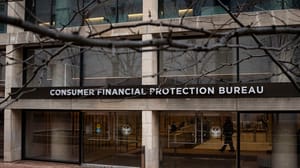How Thrivent Hopes to Grow Beyond its Base of Religious InvestorsHow Thrivent Hopes to Grow Beyond its Base of Religious Investors
Thrivent has received net inflows of $57 million since the beginning of 2017, making it one of the few bright spots in the active management industry.
March 24, 2017

By David Randall
NEW YORK, March 24 (Reuters) - Little-known ThriventFinancial, a Minneapolis-based asset manager that offersfinancial services to Lutherans, is hoping its recent streak ofoutperformance will make it stand apart at a time when steepinvestor outflows are prompting a wave of mergers throughout themutual fund industry.
The firm, which collectively manages $15 billion across its23 funds, received its second consecutive Lipper Award for bestoverall company in the small company division, and its thirdconsecutive win in the Mixed Assets, Small Company division, atan award ceremony Thursday night in New York.
While other firms struggle to retain assets as moreinvestors opt for low-priced index funds and exchange-tradedfunds, Thrivent has received net inflows of $57 million sincethe beginning of 2017, making it one of the few bright spots inthe active management industry.
Its challenge now is how to grow outside its base of currentcustomers, mainly Christians in the U.S. Upper Midwest who haveaverage account balances of $38,000 invested with the firm.
Unlike other religiously affiliated mutual fund firms,Thrivent's funds do not feature any screens that prevent it frominvesting in companies in industries like alcohol or firearms,making its funds more directly comparable with secular firmsthat offer funds at much lower costs.
"We are never going to be competitive with BlackRockor Vanguard on price", said David Royal, president of ThriventMutual Funds. "Rich people can afford to be in a hedge fund, butregular people shouldn't be forced into index product they maynot understand," he said.
Overall, Thrivent gives its managers wide leeway to investas they see fit. "There’s not a Thrivent way of managing moneythat we pass out," said David Francis, vice president ofinvestment equities.
The Thrivent Mid Cap Stock fund, itsbest-performing fund, is up 30.8 percent over the last year, andup an average of 11.4 percent over the last three years, puttingit among the best U.S. focused mid-cap funds. Its largestholdings include regional bank Zions Bancorp, Southwest AirlinesCo, and Applied Materials Inc.
The Thrivent Large Cap Value fund, meanwhile, isup 20.1 percent over the last year, in part because of largepositions in Cisco Systems Inc, Microsoft Corp and CitigroupInc.
Last March, the firm began airing its first ever televisioncommercials, attacking the notion of index-based investing bydepicting robots in suits mismanaging money. The long bullmarket in U.S. stocks, which began in 2009, has falselyconvinced investors that active management is unnecessary, Royalsaid, adding that "at some point it will flip, and I worry whathappens to the average investor then."
Investors in some of Thrivent's funds pay above averageannual fees. Investors in its Thrivent Large Cap fund, forinstance, will pay $1.20 per $100 invested, compared with the$0.14 per $100 invested in the Vanguard 500 Index fund. TheThrivent fund has lagged the S&P 500 over the last 1 and 3years.
ATTRACTIVE TARGET
The firm's religious affiliation is an asset as it growsbecause its customers may be less likely to pull dollars from afund that is underperforming, said Todd Rosenbluth, director ofETF and mutual fund research at CFRA. That sort of stickycustomer base may make it an acquisition target, he said.
"Asset managers that can retain assets are particularlyappealing in this environment when traditional products arefacing fee compression," Rosenbluth said.
Eaton Vance Corp, for instance, acquired $12.3billion Calvert Investment Management in 2016, in large partbecause of the firm's long history of socially responsibleinvesting. The terms were not disclosed.
Royal said that Thrivent has no plans to sell itself.
"We would not be a seller, we would be a buyer," he said."Certainly there's not any interest around here in selling ourfunds business. We are here to grow it." (Reporting by David Randall; Editing by Jennifer Ablan andDavid Gregorio)





